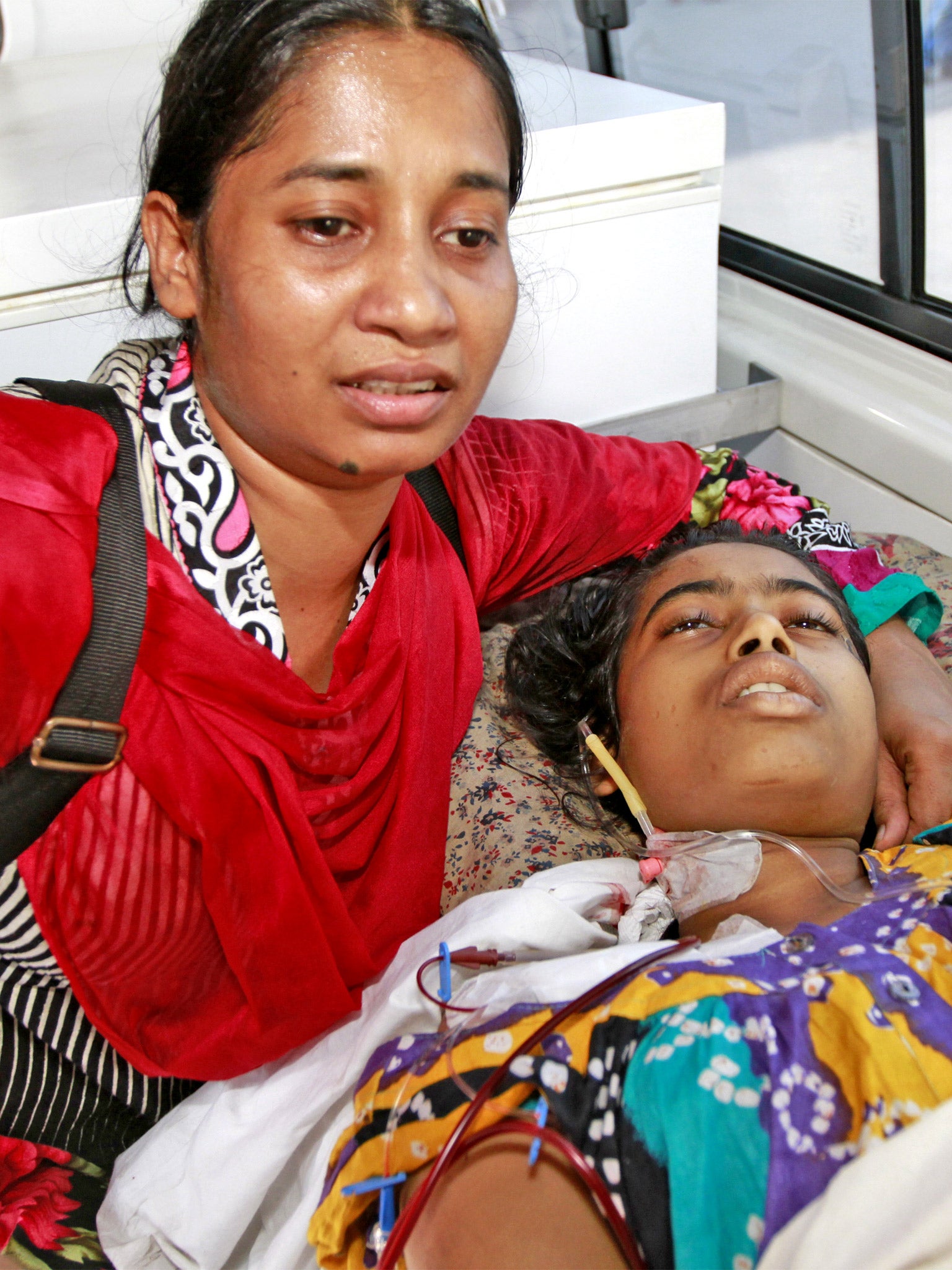Bangladesh factory collapse: ‘We could hear the screams of people, begging for their lives’
Syed Tashfin Chowdhury meets one of the unsung heroes of the Dhaka factory disaster

Your support helps us to tell the story
From reproductive rights to climate change to Big Tech, The Independent is on the ground when the story is developing. Whether it's investigating the financials of Elon Musk's pro-Trump PAC or producing our latest documentary, 'The A Word', which shines a light on the American women fighting for reproductive rights, we know how important it is to parse out the facts from the messaging.
At such a critical moment in US history, we need reporters on the ground. Your donation allows us to keep sending journalists to speak to both sides of the story.
The Independent is trusted by Americans across the entire political spectrum. And unlike many other quality news outlets, we choose not to lock Americans out of our reporting and analysis with paywalls. We believe quality journalism should be available to everyone, paid for by those who can afford it.
Your support makes all the difference.In bed 25 of ward 206 of the Dhaka Medical College Hospital, Yanur Yunus fights for her life. She had been working at Ether Tex Limited, a garment factory on the fifth floor of Rana Plaza, when it collapsed a week ago.
The 15-year-old’s body went into severe shock as a result of infections in her arms and legs, which were injured when she was trapped. She wakes from time to time and looks wildly around the room, as if she cannot believe she is no longer under the rubble that buried her.
The hand she will not let go of belongs to Asma Akhter Liza. The stage actress and activist was among the thousands of people who rushed to the scene to try to help when the building in the Savar neighbourhood collapsed.
The disaster has claimed at least 400 lives and the attention has now turned to the people who worked without pause to shift metal and steel, often with their bare hands.
Asma Akhter Liza has emerged as one of the saviours of Savar. Alongside the army, police and professional teams, the 28-year-old helped rescue 17 people from the tomb of the collapsed factory.
“I don’t remember the number of dead bodies we recovered. It seemed like I was in a trance and we dug out the holes with everything we could find,” she said. When she arrived at the site, she waved away doubtful glances from male rescuers and got straight to work.
“Crawling through the tunnel, we could hear the screams of people, begging for their lives. This affected the rescue workers emotionally and mentally. Also, the lack of oxygen was a big problem,” she said.
Yet she did not find the smell of the rotting bodies nauseating. “I regarded them all as human beings. I felt a responsibility to save them,” she said.
On the third day, already tired and anguished, she became sick. “We were crawling through the tunnel. I placed the torchlight in a direction and found at least 10 bodies hanging in the rubble,” she said. “When I tried to get closer, a hand grabbed mine. She pleaded, ‘I am Bakul. Please save me’.” But the trapped woman was among the hundreds who could not be saved.
“I do not know the rest. As soon as I was pulled out of the tunnel, I began to vomit. I was taken to hospital,” she said. “I was told later that when the doctor had asked me my name, I had answered, ‘Bakul’.”
Remarkably, the activist , supported by her husband and father-in-law, rejoined the rescue effort the next morning. Among the human tragedies she encountered few have affected her more than that of the family of Yanur Yunus. At the Adhar Chandra High School where the bodies of the dead were being laid out for identification, she ran into a boy aged nine or 10.
“I asked the boy why he was crying and he thought I was his mother. He asked me where I had gone, leaving him all by himself,” she said. “I sought the boy’s father and came with him to Dhaka Medical College Hospital, where I found the boy’s elder sister, Yanur, in this state.”
The children’s father, Mohammad, 45, a street vendor who has six children, said that although Yunus had been saved, her mother, Anwaram, who also worked on the same floor as a machine operator, was still missing. The young girl, fighting for her life, has started calling Asma Akhter Liza “mother”. “The shock of losing their mother has affected the children,” she said. “I have not let go of Yanur and am trying to help her family now.”
She added: “I would just want to see these people experience happiness again. All my efforts are directed toward this now.”
Join our commenting forum
Join thought-provoking conversations, follow other Independent readers and see their replies
Comments